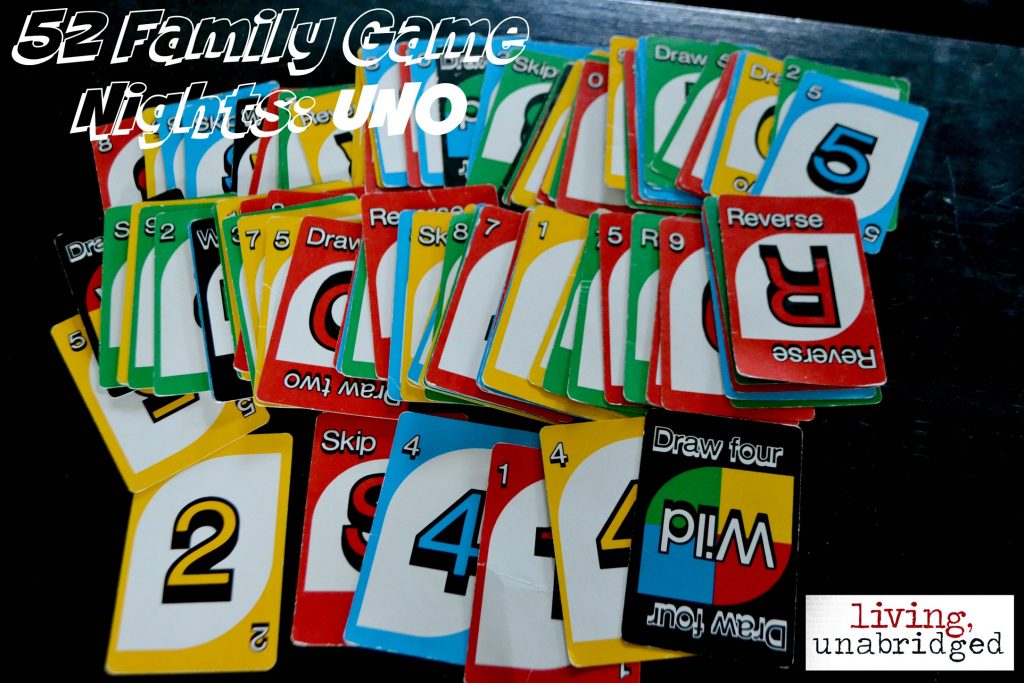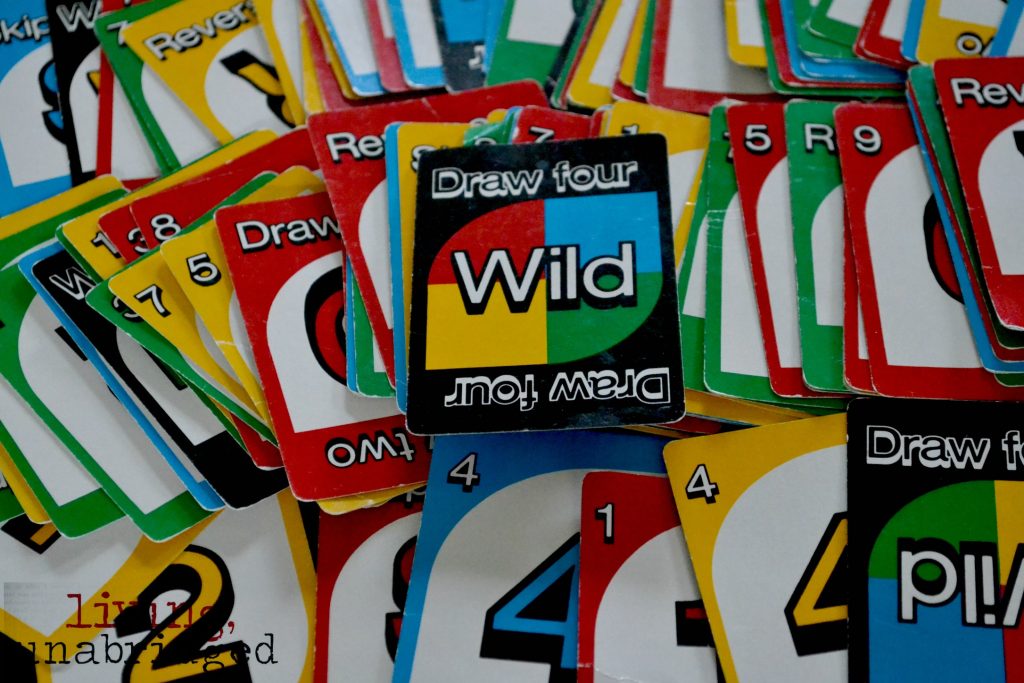I hope you've been introduced to some "new to you" games during this series. For the next few weeks we're going to focus on some classics. These are games that every family probably owns, or at the very least games you've played a time or two. Along the way we'll share our reasons for including these in our list and some variations to make old games new again.

Family Game Night #17: Uno.
OK, everyone has a copy of this old card game in their home somewhere, right? This card game was developed in 1971, in Reading, OH, which is a suburb of my hometown, Cincinnati.
I remember marathon games of this in my childhood. One Christmas Eve in particular, playing with my siblings, parents, and grandparents, we seemed to have a never ending round of this. I can't remember who won, but I bet it was my Grandma.
Anyway, just in case you've forgotten, you play cards by matching color or number or by following the directions on the action cards (Draw 2, Reverse, Skip, Draw 4). When you've played down your hand to one final card you have to say, "Uno!"
This is one of the first games a child can learn to play with the whole family. Our five year old is a huge fan. (In her Kindergarten graduation we were presented with a notebook of her answers to questions her co-op teachers had asked throughout the year. Under "Skills I Have" she had specifically mentioned her "Uno" skills and how she can beat her big sisters.)
 Uno Variations
Uno Variations
One way to renew an old game is to revitalize the rules. Some suggestions to get you started:
- Unlimited drawing until you draw a card to play instead of drawing one card when you can't play (this is actually an official rule variation). This variation can really extend the length of the game - which probably explains why my husband hates it.
- Immediately playing a card from your hand if it exactly matches - color and number - the card someone else has played. For instance, someone plays a green 7 and you have a green 7 so you play your green 7 on top of theirs and play now proceeds from you.
- Removing the "Draw 4" cards from the game. This variation makes for a happier experience when you have young players.
- Keeping or not keeping score.
- Making certain color / number combinations wild.
- Making it illegal to go out on a Wild.
- Put some Math into practice by allowing a card to be played if it is the answer (adding or subtracting) to the previous two cards. (If you poke around Pinterest you'll see there are lots of Math games that can be played with Uno cards, but those aren't the focus of this post and we're not primarily interested in the Math aspect of games. This series is about fun and family bonding!)
- Play "Dealer Rules" and allow the dealer to specify the rules for that round. Young children especially seem to enjoy this.
Family Game Nights are about making happy memories. Uno is not the best or most original game in the world, but it does inspire happy memories. That means it's worthy of a mention in this series. There are a crazy amount of themed Uno cards and we own several, but I think the classic is still my favorite. The price tag new is minimal (less than $10) and you can find copies at yard sales and thrift stores for pennies. I find it hard to resist a classic pack of Uno cards.
Good memories are a powerful thing.
Summary of Uno
Number of Players: 2-10, according to the rules
Recommended Ages: 7+, but we've played with children as young as 4.
Reading Required: No. The original or classic decks do have words on the action cards (some newer sets are symbols only) but a child can easily learn what these cards represent.
Have a card game memory to share? An Uno rule variation? I'd love to hear them.








UNO is a quick-paced card game for two to ten players ages seven and up. The motive of
the game is to get to your last card, yell “UNO!” before another player acknowledges you didn’t,
and after that endeavour to play your last card on your turn to win the round.
unorulesonline.comThe player to go through his or her last card wins the round and is scored based on the cards left in their rival’s hand.